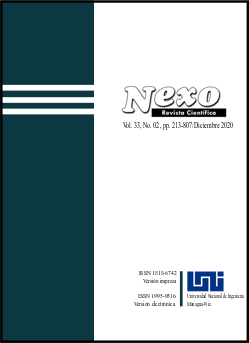Cognitive Ecology in the Age of the Internet
DOI:
https://doi.org/10.5377/nexo.v33i02.10794Keywords:
cognitive ecology, epistemology, Internet epistemology, epistemology of virtues, intellectual valuesAbstract
The article deals with the problem of intellectual behavior in the era of development of the Internet and social networks. Just as geo-ecology has put the values of nature conservation at the forefront over those of economic gain, so cognitive ecology puts intellectual values at the forefront of the cognitive process. The author substantiates the idea that the Internet has its own cognitive ecology. An overabundance of information requires more complex skills in evaluating and analyzing information, as well as changing value-based intellectual attitudes. It is argued that the theoretical basis for the analysis of cognitive ecology in the Internet age can be the epistemology of virtues, in which various intellectual virtues and vices are studied. The article lists some intellectual virtues and vices that can be demanded when working on the Internet. These intellectual virtues include: open-mindedness, intellectual caution, intellectual courage, intellectual thoroughness, etc. It is shown that manifestation of intellectual virtues is necessary to navigate in epistemologically “unfriendly” environment of the Internet.
Downloads
Downloads
Published
How to Cite
Issue
Section
License
Copyright (c) 2021 Array

This work is licensed under a Creative Commons Attribution 4.0 International License.
The authors who publish in Nexo Scientific Journal agree to the following terms:
- Authors retain the copyright and grant the journal the right of the first publication under the license Creative Commons Attribution License https://creativecommons.org/licenses/by/3.0/, which allows others to share the work with a recognition of the authorship of the work and the initial publication in Nexo Scientific Journal.
- Authors may separately establish additional agreements for the non-exclusive distribution of the version of the work published in the journal (for example, in an institutional repository or a book), with the recognition of the initial publication in Nexo Scientific Journal.
- Authors are allowed and encouraged to disseminate their works electronically (for example, in institutional repositories or in their own website) before and during the submission process, as it can lead to productive exchanges, as well as earlier and greater citation of published works.











